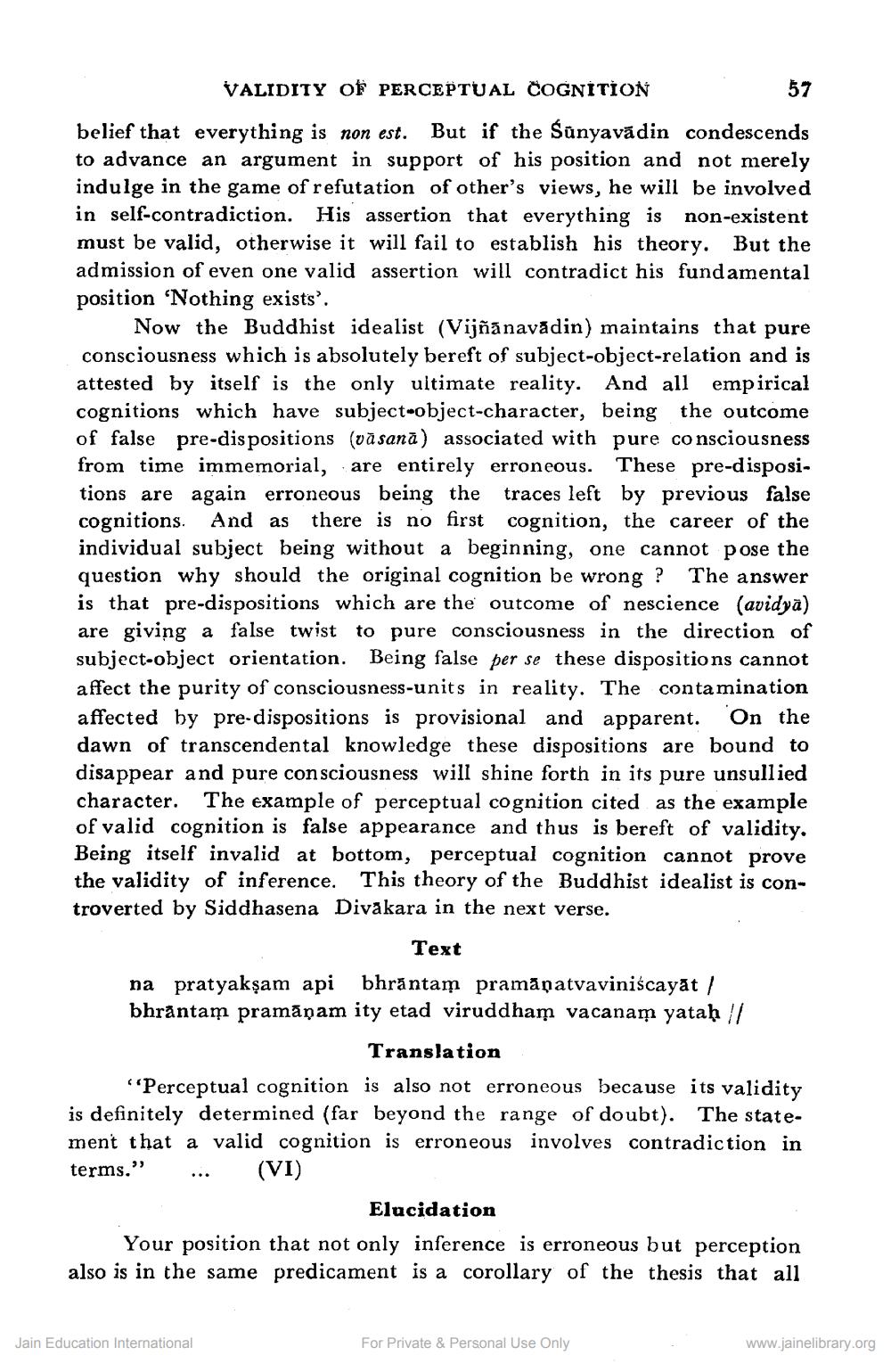________________
VALIDITY OF PERCEPTUAL COGNITION
belief that everything is non est. But if the Sunyavādin condescends to advance an argument in support of his position and not merely indulge in the game of refutation of other's views, he will be involved in self-contradiction. His assertion that everything is non-existent must be valid, otherwise it will fail to establish his theory. But the admission of even one valid assertion will contradict his fundamental position 'Nothing exists'.
Now the Buddhist idealist (Vijñānavādin) maintains that pure consciousness which is absolutely bereft of subject-object-relation and is attested by itself is the only ultimate reality. And all empirical cognitions which have subject-object-character, being the outcome of false pre-dispositions (vasanā) associated with pure consciousness from time immemorial, are entirely erroneous. These pre-dispositions are again erroneous being the traces left by previous false cognitions. And as there is no first cognition, the career of the individual subject being without a beginning, one cannot pose the question why should the original cognition be wrong? The answer is that pre-dispositions which are the outcome of nescience (avidya) are giving a false twist to pure consciousness in the direction of subject-object orientation. Being false per se these dispositions cannot affect the purity of consciousness-units in reality. The contamination affected by pre-dispositions is provisional and apparent. On the dawn of transcendental knowledge these dispositions are bound to disappear and pure consciousness will shine forth in its pure unsullied character. The example of perceptual cognition cited as the example of valid cognition is false appearance and thus is bereft of validity. Being itself invalid at bottom, perceptual cognition cannot prove the validity of inference. This theory of the Buddhist idealist is controverted by Siddhasena Divakara in the next verse.
Text
na pratyakşam api bhrāntam pramāņatvaviniscayat / bhrāntam pramāņam ity etad viruddham vacanam yataḥ //
Translation
"Perceptual cognition is also not erroneous because its validity is definitely determined (far beyond the range of doubt). The statement that a valid cognition is erroneous involves contradiction in terms."
(VI)
57
Elucidation
Your position that not only inference is erroneous but perception also is in the same predicament is a corollary of the thesis that all
Jain Education International
For Private & Personal Use Only
www.jainelibrary.org




